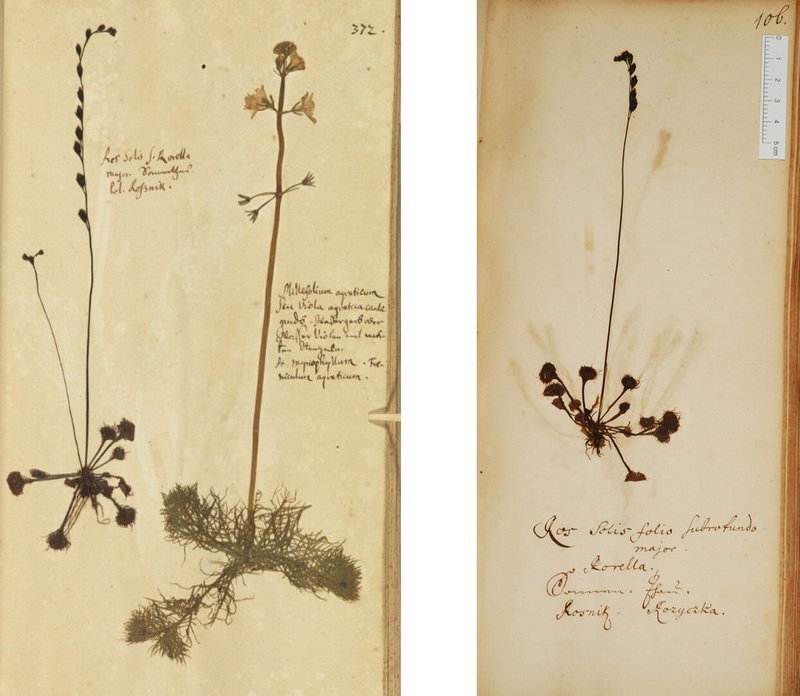In 2018, the international journal Biodiversity, Research and Conservation (No. 51) published an article titled "Herbaria of the Prussian physician Boretius (1694-1738) in the Herbarium WA", co-authored by botanist working in our Garden Adam Kapler,
In an era of growing controversy over the safety of vaccinations against infectious diseases and the renaissance of herbalism on the grounds of "alternative medicine" and academia, it is worth recalling the figure of a physician appointee of the King of Prussia and an outstanding botanist of the Enlightenment era: Matthias Ernest Boretius (Boretius 1694-1738). He observed the experimental variolysis of six convicts in London, after which he promoted this method of fighting smallpox in his native Prussia. One of the most valuable collections in Central Europe remains the herbariums made by Boretius under the direction of his father-in-law, pastor and naturalist Andrew Helwing, kept at the Warsaw University Herbarium. They represent a type of herbarium vivum, i.e. collections of real, dried plants, not just engravings of them. Despite the passage of centuries, they are important to scientists in at least three aspects: floristic, historical and nomenclatural. Due to numerous wars and border changes, very few works of this type from before 1800 have survived to the present day, and only exceptionally illustrated with plants collected in our lands. Specimens were arranged according to J. P. de Tournefort's (1656-1708) pre-Linneau system of classification, based on the structure of flowers and fruits, or lack thereof.
Publication:
Graniszewska M., Kapler A. 2018. herbaria of the Prussian physician Boretius (1694-1738) in the Herbarium WA. Biodiversity Research Conservation 51: 1-6. DOI 10.2478/biorc-2018-0012.
post
post
2018-09-08 05:44:10


